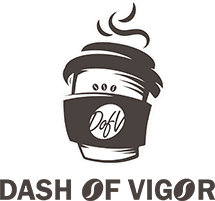Does Coffee Make You Gain Weight?

What you will read will not make you very happy. Many of us coffee lovers are looking for an answer to the question, “Does Coffee Make You Gain Weight?”. The short answer is that it is quite possible. But how does this happen? What else can it lead to? And how can we continue to drink coffee without affecting our weight? I will answer these and other questions in the article.
Very strange, significantly since eating coffee beans can help you lose weight.
If you are a regular visitor to Starbucks, they have several healthy drinks to choose from.
Let’s dig in.
TABLE OF CONTENTS:
- Does Coffee Make You Gain Weight?
- How Does Caffeine Causes Weight Gain?
- How to Drink Coffee Without Gaining Weight?
Does Coffee Make You Gain Weight?
According to specialized studies, coffee may help with weight loss, but it may also hinder it. Let’s see the negative impacts, and finally: does coffee make you gain weight?
Disruption of Healthy Sleep Patterns
Caffeine, a stimulant, inhibits the brain’s chemical adenosine, which causes tiredness. Using this might give you a boost if you’re feeling run down. The earlier in the day you drink coffee, the more likely it is to disrupt your sleep cycle.
This, in turn, may contribute to an increase in body weight. Many studies have connected sleep loss to obesity, increased food consumption, and a preference for convenience meals.
Fattening Because of Popular Coffee Pairings Intake
Coffee is synonymous with a sugary delicacy like a pastry for many individuals. As a consequence of caffeine altering your perception of sweetness, you may find yourself yearning for sweets. You may gain weight if you have a high-sugar snack with your cup of coffee every day.
Enjoy your coffee with meals rich in protein and healthy fats, such as a handful of nuts or an egg for breakfast, to prevent the sugar cravings that may lead to weight gain.
Certain Coffee Drinks That Contain Many Calories and Sugar
Even though pure coffee has negligible calories, most coffee drinks are laden with sugar and other additives. Sweetened coffee drinks supplied at chain coffee shops and well-known franchises include hundreds of calories and sugar. For example, Starbucks’ caramel Frappuccino contains 420 calories and more than 16.5 teaspoons (66 grams) of sugar in a Grande (16 ounces or 470 ml).
In the long run, frequent drinking of sugary beverages such as sweetened coffee blends might cause obesity. Bulletproof coffee, a popular drink made with butter or coconut oil, is another popular alternative.
Adding high-fat, high-calorie ingredients such as coconut oil to your coffee may help your health. Still, if you don’t account for the additional calories, you risk gaining weight.
How Does Caffeine Causes Weight Gain?
Coffee and tea are often referred to as “health foods” because of the substantial amounts of nourishment they contain. Antioxidants and phytonutrients are excellent examples of this. Coffee may also preserve your brain and give you a lift throughout a workout. It may also help you get up in the morning and lift your spirits, but only if you use it regularly (or drink coffee once every couple of days).
Significant research demonstrates coffee’s fat-burning and metabolism-boosting properties. This is true for some, but it’s not true for everyone. On the other hand, caffeine has the opposite impact, wreaking devastation on our bodies and causing fats to be stored in the belly area.
If you’ve recently gained weight, have a lot of belly fat, or have trouble controlling your blood sugar levels, you should know that coffee and caffeine intake may harm your health. Let’s check all these effects.
Diabetes
Coffee, as previously said, acts as a stimulant. Various individuals react to stimuli differently, such as how old they are or how healthy they are, or how well they can cope with stress. It’s possible that your hormone, insulin, is attempting to express something to you if you’re always hungry and can’t figure out why.
Apple-shaped bodies are standard among diabetics and those with high blood sugar levels. It’s for a good purpose! If you’re continually releasing insulin because you’re consuming things that activate it, you’re undoubtedly gaining belly fat over time. Insulin plays a crucial role in eliminating glucose (sugar) from your blood. In addition to storing and preventing the release of fat, it serves as a buffer.
According to a study, coffee has been proven to reduce insulin sensitivity, or our body’s capacity to keep insulin in balance, even in healthy people. Consuming caffeine in combination with meals has been demonstrated to negatively affect blood sugar levels, even in healthy individuals.
Think about this if you have diabetes, high HbA1C results, or difficulty regulating blood sugar levels. Obesity and diabetes/pre-diabetes are closely linked.
Stress
Stress and belly fat typically go hand in hand because cortisol levels are kept up for far too long when people are stressed. Caffeine, on the other hand, makes matters worse.
Cortisol is a stress hormone that helps maintain our immune system and control inflammation via cortisol. A fight-or-flight reaction caused by it may also aid us. Cortisol can divert blood to our legs and arms, allowing us to sprint like the wind and escape from different things.
However, when we increase cortisol in a harmful way, things go horribly wrong. Drinking black coffee or tea, which has no calories, may have a fattening effect. Sugary energy drinks or diet sodas packed with artificial sweeteners aren’t going to help you get through the day.
This is how it all comes together. Your body’s natural cortisol levels should be at their highest when you get up in the morning. Our cortisol levels begin to diminish as the day progresses. They should be at their lowest levels at bedtime and throughout the night.
Caffeine Artificially Inflates Cortisol
All stress is perceived as increased cortisol concentrations by our bodies. It does not differentiate between physical and physiological stress. Stress, anxiety, and panic elicit a fight-or-flight response in the body. When this occurs, we accumulate belly fat because of the interrupted metabolism of fats.
Caffeine adds gasoline to the cortisol fire, raising the pressure even higher. Adding coffee to a stressful, anxious, or fearful lifestyle will increase belly fat.
If you’re coping with chronic stress or anxiety, please don’t perceive this as a lecture that you’ve done something wrong or willfully attempting to ruin your body. That is not what I am trying to say.
The essential thought is that caffeine withdrawal may have a significant positive impact. It may not completely alleviate your tension or worry, but it will definitely assist.
Sleep
Every night, we need to obtain roughly five sleep cycles. An entire REM cycle is completed in each of those 90-minute sessions. Our pituitary gland produces much human growth hormone (HGH) at the beginning of each process, which aids in muscle repair, skin improvement, and fat burning.
Is that what you were looking for? A hormone is released when we sleep, and it helps us burn fat! Take advantage of this fantastic benefit by cutting down or completely eliminating caffeine after the morning.
Caffeine’s effects last roughly six hours in the body. This is dependent on a variety of factors, including body size, way of life, degree of stress, etc. After a cup of coffee in the afternoon, you’ll still have a little bit of caffeine in your system when it’s time to go to sleep.
Caffeine may disrupt your circadian rhythm, which is your body’s internal clock, causing you to lose an hour of sleep just by taking it. As a result, you will miss out on one of the most essential human growth hormone production cycles.
Sleep deprivation causes our bodies to create more ghrelin. This hormone causes us to overeat and accumulate fat around our waist, leading to obesity. Our bodies generate less leptin, the hormone that instructs us to quit eating when we aren’t getting enough sleep.
If you believe you’re getting enough sleep, drinking coffee, especially after a specific time in the morning, may cause you to miss out on rest. As a result, it increases your belly fat percentage.
Hormonal Imbalance
Even modest coffee use may raise estrogen levels in many women. However, not all women are impacted in the same manner.
Estrogen and progesterone, two critical hormones, need to be in harmony. Their levels are out of whack when we elevate our estrogen circulating levels over the typical range. Estrogen dominance is the term for this.
An estrogen-dominating body has a pear-shaped form. Despite the reduced waist, this lady carries a lot of fat around her hips, thighs, and lower abdomen (usually below the belly button). In addition to a bloated belly, premenstrual headaches, lumpy breasts, and difficulty sleeping, there are many more symptoms of estrogen dominance.
Our liver is usually quite excellent at removing caffeine from our bodies. However, the exact mechanism utilized to detox caffeine is also required for caffeine detoxification. A chemical traffic jam in our liver causes our body to hang on to an excessive quantity of estrogen, resulting in a hormone deficiency.
This is one of the ways we cause an estrogen/progesterone imbalance, which sets off a chain reaction of hormonal issues that leads to weight gain and the accumulation of belly fat.
How to Drink Coffee Without Gaining Weight?
It is possible to have a cup of coffee each day without overindulging in calories. The most crucial advice is to avoid using too much sugar in your coffee. Many flavored creamers and pre-made lattes include sugar. Many people add sugar or liquid sweeteners such as agave syrup straight to their cup of joe to sweeten it up.
Adding taste to your coffee without increasing your daily sugar consumption is possible by using the following methods:
- Top with cinnamon.
- Almond, coconut, or half-and-half are all suitable substitutes for regular milk.
- A natural, zero-calorie sweetener, Stevia may be used in tiny amounts.
- A little square of premium dark chocolate will melt in your mouth.
You can also use the popular trend called “coffee and lemon weight loss.” The combination of black coffee and lemon juice in the morning may help you lose weight more successfully by burning your tummy fat. To make a cup of coffee, just add hot water to some coffee. Warm the mixture and add a squeeze of lemon juice before drinking. Drinking it half an hour before working out at the gym is the ideal strategy for getting the most out of your exercises.
Despite the low sugar content, the additional calories from half-and-half and coconut milk are more than those from the other two liquids. Consuming large quantities of these things in your coffee might lead to weight gain.
Make your own coffee at home, if possible. You’ll be able to save money while also having more control over how much sweetness goes into your food.
References:
- Lee, A., Lim, W., Kim, S., Khil, H., Cheon, E., An, S., Hong, S., Lee, D. H., Kang, S. S., Oh, H., Keum, N., & Hsieh, C. C. (2019). Coffee Intake and Obesity: A Meta-Analysis. Nutrients, 11(6), 1274. https://doi.org/10.3390/nu11061274
- Rustenbeck, I., Lier-Glaubitz, V., Willenborg, M., Eggert, F., Engelhardt, U., & Jörns, A. (2014). Effect of chronic coffee consumption on weight gain and glycaemia in a mouse model of obesity and type 2 diabetes. Nutrition & diabetes, 4(6), e123. https://doi.org/10.1038/nutd.2014.19
- Tabrizi, R., Saneei, P., Lankarani, K. B., Akbari, M., Kolahdooz, F., Esmaillzadeh, A., Nadi-Ravandi, S., Mazoochi, M., & Asemi, Z. (2019). The effects of caffeine intake on weight loss: a systematic review and dos-response meta-analysis of randomized controlled trials. Critical reviews in food science and nutrition, 59(16), 2688–2696. https://doi.org/10.1080/10408398.2018.1507996
- Lopez-Garcia, E., van Dam, R. M., Rajpathak, S., Willett, W. C., Manson, J. E., & Hu, F. B. (2006). Changes in caffeine intake and long-term weight change in men and women. The American journal of clinical nutrition, 83(3), 674–680. https://doi.org/10.1093/ajcn.83.3.674
- Feyisa, T. O., Melka, D. S., Menon, M., Labisso, W. L., & Habte, M. L. (2019). Investigation of the effect of coffee on body weight, serum glucose, uric acid and lipid profile levels in male albino Wistar rats feeding on high-fructose diet. Laboratory animal research, 35, 29. https://doi.org/10.1186/s42826-019-0024-y
- Larsen, S. C., Mikkelsen, M. L., Frederiksen, P., & Heitmann, B. L. (2018). Habitual coffee consumption and changes in measures of adiposity: a comprehensive study of longitudinal associations. International journal of obesity (2005), 42(4), 880–886. https://doi.org/10.1038/ijo.2017.310
- Acheson, K. J., Zahorska-Markiewicz, B., Pittet, P., Anantharaman, K., & Jéquier, E. (1980). Caffeine and coffee: their influence on metabolic rate and substrate utilization in normal weight and obese individuals. The American journal of clinical nutrition, 33(5), 989–997. https://doi.org/10.1093/ajcn/33.5.989
- Rustenbeck, I., Lier-Glaubitz, V., Willenborg, M., Eggert, F., Engelhardt, U., & Jörns, A. (2014). Effect of chronic coffee consumption on weight gain and glycaemia in a mouse model of obesity and type 2 diabetes. Nutrition & diabetes, 4(6), e123. https://doi.org/10.1038/nutd.2014.19
- Jin, M. J., Yoon, C. H., Ko, H. J., Kim, H. M., Kim, A. S., Moon, H. N., & Jung, S. P. (2016). The Relationship of Caffeine Intake with Depression, Anxiety, Stress, and Sleep in Korean Adolescents. Korean journal of family medicine, 37(2), 111–116. https://doi.org/10.4082/kjfm.2016.37.2.111







